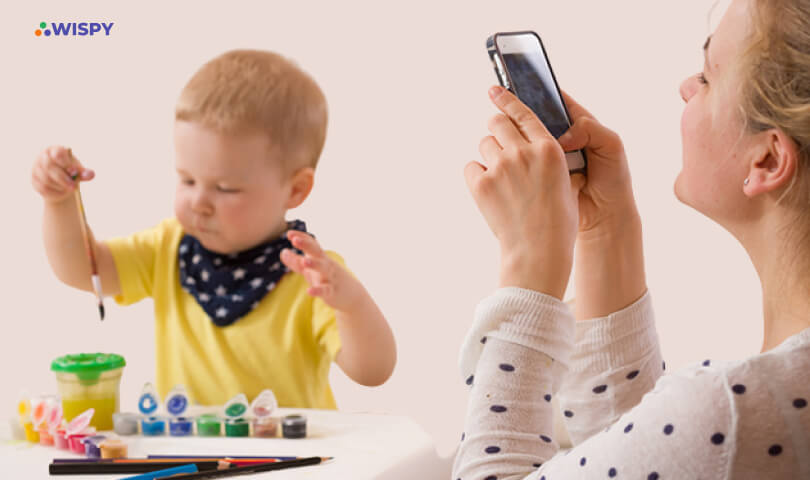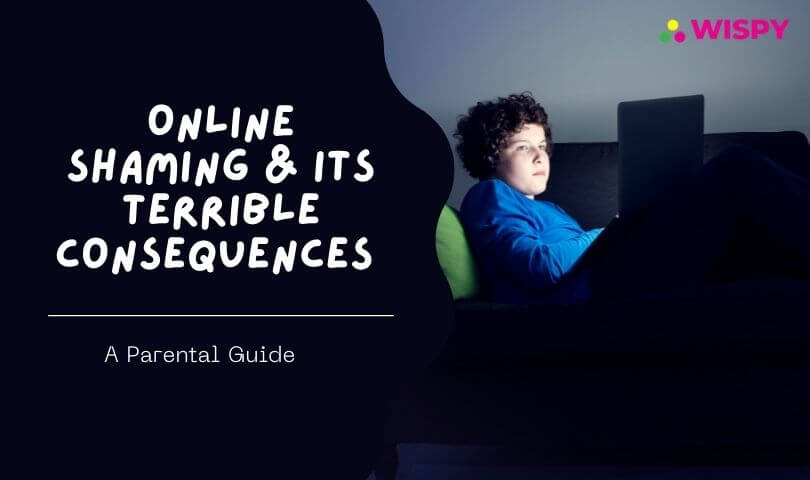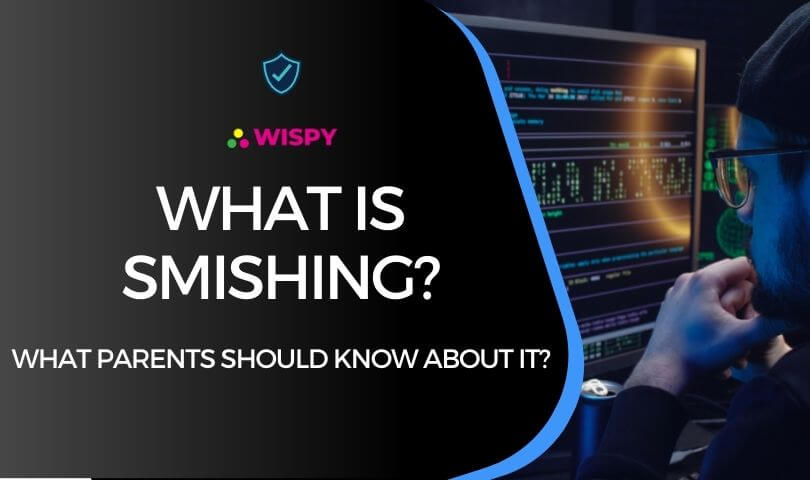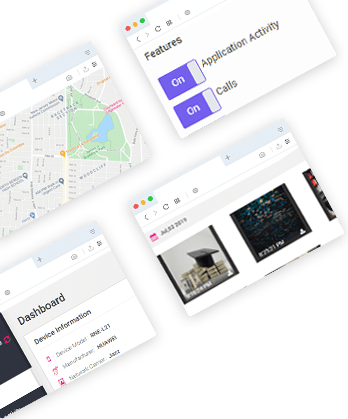

Categories
Recent Posts
What is Sharenting? Does It Invite Unsolicited Dangers?
Posted in Cyberbullying by Julie

Sometimes parents and social media are inseparable. Parents feel over the moon on the day of their child’s birth. They find the tiniest details about a child’s gestures worth sharing with the world. Moreover, it is very hard to resist the urge to keep posting pictures of little ones online.
Parents share pictures and videos of their adorable ones on social media because they are overjoyed and thrilled about their children. However, parenting is full of surprising challenges. Therefore, they form and join online communities to share tips to help other parents who find parenthood difficult. Some parents find themselves solitary in many situations, but sharing and bonding online with others uplifts the mood.
What is Sharenting?
Sharenting is derived from over sharing. It is usually referred to as parents oversharing their child’s images, videos, and other information on social media platforms. It is generally done without the consent of their child. By the way, how will a one-month-old child give permission anyway?
It is normal to share a few things now and then on the internet. Still, too much distribution of individual activities or information on the internet is high-risk. Thus it falls into the category of sharenting. We have encountered numerous accounts in which the parents operate in the name of their babies. They pleaded that they created an account on Instagram for kids to give them when they grow up.
The question arises, can sharenting put your child in danger? Let’s find out.
RELATED: All About Cyber Dangers Every Parent Should Know
What are Unsolicited Dangers?
We are breaking down some not-so-obvious sharenting dangers, which you may have never thought about. Parents need to ask themselves before publicizing their child’s life online.
Invading Your Child’s Privacy:
If you are addicted to sharenting, you need to get ready to face your child’s meltdown. Usually, when kids as teenagers go online, and they see basically their entire life put on display, they feel embarrassed. In addition, they feel betrayed and breached of privacy by their parents.
What you told the internet users about the child at the age of 5 may change when they grow up. Moreover, the infancy anecdotes or funny pictures you shared online can become moments of embarrassment for the child as they grow into their youth. They develop a sense of lacking ownership of their physical anatomy or values.
Bullying:
If you post problems or misbehavior stories about your child, you should know that people react differently. Without you knowing, your child may become a target of insults or ridicule. In addition, people often tease children when they grow older about the stuff their parents showed off on the internet.
It takes not long for a photo to go public these days. An inside joke may turn into a humiliating stigma for children. Peers and strangers may bully your child, leaving long-term depressing effects on their lives. Parents’ YouTube channel about their kids often gets very nasty anonymous comments on their videos.
Child’s Future:
It is tough to do damage control once things are posted online. You may delete the posts from your account. Still, those posts will remain a part of the digital world forever. People may take snapshots of embarrassing posts and broadcast them beyond your reach.
Hence before publishing the content online, think about how fellow peers and fellow employees may react upon discovering those embarrassing moments. For example, if your child chose to become a public figure, how things of this sort would damage their professional career. Just food for thought.
Digital Kidnapping:
A more serious threat to sharenting is identity theft. And digital kidnapping is considered a part of identity theft. For instance, someone steals the photo of a child from someone’s social account (for example, Instagram and Facebook) to reclaim it as their own. It is called digital kidnapping.
Unfortunately, there are many incidents reported of such kidnapping. And the worst one is role-playing. The lives of children and social media should be kept separate. Role-players impersonate your child to get attention from another kid or adult. They have malicious agendas, often leading to child abuse.
Attracted by Dangerous People:
Parents on social media sharing unlimited videos and pictures should know that those posts can land on disturbing websites where child predators reside.
You may find it disgusting that the children’s eSafety commissioner of Australia pointed out a website that contained more than 45 million pictures of little children. It included more than half images that they stole from accounts of parents on social media. In addition, child perpetrators made inappropriate comments on them.
In addition to sharenting dangers, parents can easily give away the location and identities of children without realizing it. Child kidnappers can follow the tagged sites or landmarks.
What are the Safer Ways to Sharenting?
Think Twice:
Parents must think twice before uploading anything related to their child or parenting. Over sharenting makes you forget the consequences your child may face when they grow up because of your desire to display their childhood to strangers.
Never Post Undressed Pictures:
We emphasize never posting undressed images or videos of your little one. People can manipulate them in many ways, not to forget the child’s illicit content. Also, little clothing means no clothing to child predators.
Review Social Media Privacy Policy:
Beware of the constant changes in privacy policies of social media sites like Instagram and Facebook. Keep the settings private and reduce your friend list to trusted ones only.
Set Google Alert:
You can be notified when your child’s name pops up in any google search. Set Google alerts to help you.
Don’t Share Location and Personal Information:
Stop tagging locations of your infants. As discussed above, it is not a good idea to share the frequently visited places or share their full names and numbers online.
No Digital Biography or Photo Album:
Likewise, we discourage parents from creating a digital biography on social media. Or create a photo album on them. Therefore, a dictionary for parents must include another word for privacy, i.e., classified.
How to Stop Sharenting?
Social media was formulated to be addictive. So don’t worry; you are not alone to experience dopamine with every like or comment. But consider doing;
- Remove social media apps from the home screen
- Stop the notification alerts of social apps
- Monitor and do time management of social media platforms
- Use a genuine kid monitoring app to limit the time of your social media apps
Parenting Vs. Sharenting:
We need to accept that the combination of parents and social media can be hazardous to a child’s future if they are sharenting. The era of guilt-free internet is over. Using Instagram for kids can damage their personality and future.
A child grows with living examples of their parents. They admire parents and copy everything. Hence, parents need to set the rules for themselves and their children for online safety. Remember, your job is parenting, not sharenting.
Verdict:
Millennial parents are most likely to share stories of their children, and social media plays a vital role in distribution. In the US survey of 1000, over three-quarters of parents share information about children on social media. Among those, 80 percent used real names in those posts.
Parents who are sharenting don’t do it out of bad intentions. Instead, they want to stay connected with their families living abroad or just be a proud parent. Unfortunately, however, the dangers are far worse than the benefits.
Happy hormone-dopamine can cause you addiction like sharenting. But be mindful of throwing everything online. One happy moment can become a nightmare for your kid.
Categories
Recent Posts
Related Posts

How Internet Trolling is Cultivating Culture of Hate?
Trolling has become a headache for internet users. But don’t...
Read More
Online Shaming & Its Terrible Consequences – A Parental Guide
When the internet started booming, everyone rushed to grab the...
Read More
What is Smishing? What Parents Should Know About It?
Smishing is the trickery of sending an SMS asking the...
Read More

Install TheWiSpy Monitor App Now and Start Exploring Your Kid’s and Employee’s Digital Space
- Protect Your Kids
- Secure Your Business
- Backup Personal Data

- Products
- Features
- Social Media Monitoring
- Web Browsers HistoryNew
- Call Recording
- Track Call History
- Hack Phone Contacts
- Monitor Saved Photos
- Spy Microphone Surroundings
- App Monitoring
- Spy Text Messages
- Video Recording
- Voice Message Recording
- Wifi Log
- Spy Camera
- Remote Access to Target Phone
- 24/7 Instant Alerts
- GPS Location
- Pricing
- Blog
- Help
- +1 808-278-9881
- Demo
 Affiliate Login
Affiliate Login- Affiliate Registration
 Login
Login- Sign Up

 English
English Spanish
Spanish
 Spanish
Spanish